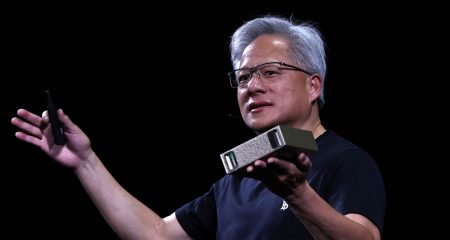 By the time Evans Kiragu arrived in South Africa for a four-month training camp for promising games developers, the Kenyan had already created more than 80 mobile titles. But what happened next was beyond his wildest ambition: a game that shot to number one in the US download charts.
By the time Evans Kiragu arrived in South Africa for a four-month training camp for promising games developers, the Kenyan had already created more than 80 mobile titles. But what happened next was beyond his wildest ambition: a game that shot to number one in the US download charts.
The President, loosely based on a fictionalised Donald Trump, was inspired by the former US leader’s ever-present role in public discourse, Kiragu said in an interview.
“We decided to zone in on the humour — it is about being a powerful president but making very silly, hilarious decisions as you go,” he said. “It worked like magic.”
Kiragu and his team at Nairobi-based Mekan Games designed the game at the 2021 training course in Cape Town, which was co-hosted by South African publishing startup Carry1st and CrazyLabs — a global leader with more than four billion downloads. It topped the US charts for a few days in July this year, and will make Mekan about US$1-million (R17-million), enough to keep it afloat for three years.
Mekan’s success has born out of an African gaming industry that’s accounting for a small yet significant amount of investment amid the continent’s startup boom, which has been triggered by a youthful population and greater Internet connectivity through smartphones.
There are about 200 million gamers on the continent generating more than $1-billion in revenue, according to Cordel Robbin-Coker, the co-founder and CEO of Carry1st. That’s triple the numbers from 2015 and the growth is only expected to accelerate.
“It is really tough to make a commercially successful game and it is amazing that in our first cohort, we had a team from Kenya that had one,” he said. “The US is the biggest, most competitive market.”
$20-million
Carry1st raised $20-million earlier this year from US private equity firm Andreessen Horowitz, Google, Avenir Growth Capital and superstar rapper Nas to grow its content portfolio and user base.
The start-up has since doubled its team and increased annual revenue fivefold, Robbin-Coker said, and is looking to raise more funds.
The success of The President “shows what kind of latent talent is here but isn’t being tapped”, he said. As for the continent’s gamers, the prevalence of mobile phones helped expand the appeal to lower-income earners and to women, he said.
Still, Africa accounts for just 1% of the $100-billion global industry, so Mekan will continue to focus on more developed markets such as the US, Kiragu said. That’s partly because of the untapped demand, said Dawit Abraham, founder of Ethiopia’s Qene Games and the spokesman for the Pan-African Gamers Group.
“It is there for the taking. The continent is the market easiest for us to dominate in a very short time,” he said. The “current social awakening toward global content”, as seen in the global popularity of Afro Beat or Korean music, can translate to games, too, he said. — Samuel Gebre, (c) 2022 Bloomberg LP




